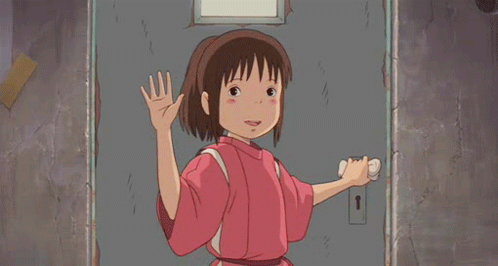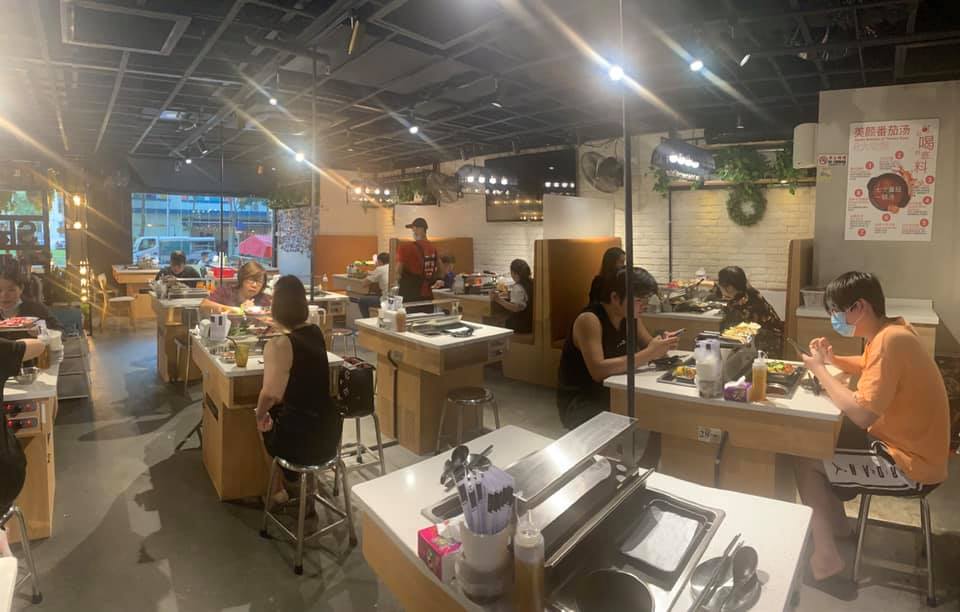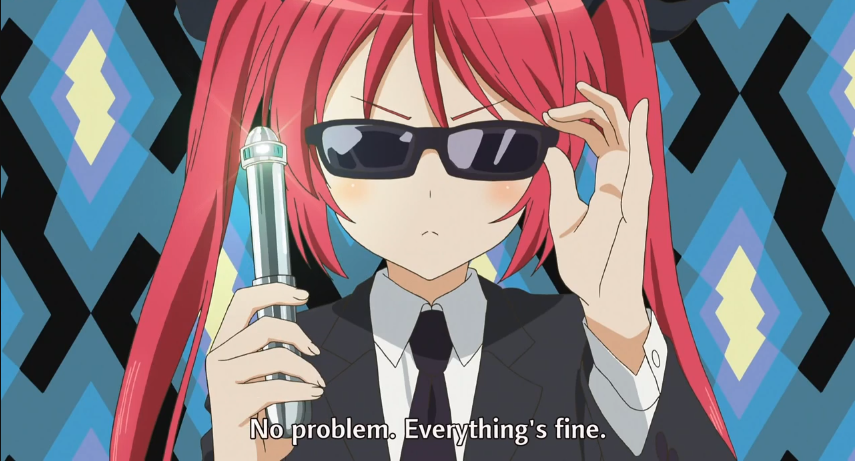Before the period of the Covid pandemic, many buffet restaurants operated on a self-help basis. Customers will just go to the food area on their own and take whichever food they would like back to their table. Be it cooked or raw food, for barbeque or for hotpot, the mode of operation is the same. Very few operated on the basis on which they take your order, send the order to the kitchen, and then serve it to your table once ready. This kind of operation usually applies more to ala-carte orders found in the rest of the restaurants, not a buffet-style restaurant.
During the Covid pandemic, many places were restricted. Although it was a half-baked attempt at constraining the spread of Covid, the Singapore Government still allowed people to go out and live life with some semblance of normalcy, with much restrictions of course. People could go out and eat in pairs or in groups of 5, depending on how severe the spread of Covid was. Due to the restrictions, many buffet restaurants blocked off their self-help area and turned to taking orders from customers and delivering food to their table.
This caused a lot of tension and unhappiness at first. Due to the sudden change, many restaurants were unable to cope. Their staff manning level were usually just sufficient to maintain the restaurant’s food preparation, clearing of plates and any other duties except for serving food. Now with the same manpower they were required to take orders and serve food to the many customers. This caused long waiting time, unhappiness to the customers and subsequently a decline in returning and new customers due to the bad reviews. I remembered walking out of a shop once because the staff were too slow at serving and I had no patience for them. It did not help that many customers seem to have a decision-making issues and would take their own sweet time placing orders, jamming all other customers behind. One by one, many restaurants closed down and did not survive the 2-year Covid restrictions the Singapore Government placed on society.

I believe the above restrictions and situation happened to many people and businesses in different countries.
However one Chinese hotpot buffet restaurant impressed me. Originally a conveyor belt style restaurant, with seating places along the food conveyor belt, they had quickly made the decision to demolish everything and set up only tables for 2 with only a few 4-seater tables around. Note that during this 2 year Covid period, the Singapore Government alternated between a maximum allowable 2-pax dining or 5-pax dining. This frustrated many people with the ever-changing restrictions and the uncertainty of the future. This restaurant however, made the decision to spend the money to demolish its existing system, set up the new 2-pax dining table all over its shop complete with electrical wirings (they are serving hotpot) and added a mini-barbeque beside its hotpot. It went for a more conservative 2 pax dining system and prepared to forego customers with more numbers who wanted to sit together. While all other buffet restaurants were suffering, this particular restaurant was one of the minority who did well.

The above picture is a real picture from the shop I am referring to. Firstly it showed the business owner’s foresight to expect that Covid and the country’s restriction will not end any time soon, second to leave nothing to luck by converting most of the shop’s sitting arrangement to 2-pax dining and thereby ensuring that no matter what they will have customers, and lastly the willingness to execute the plan by spending money to demolish the setting in the shop and set up tables complete with all the electrical wirings to supply power to the hotpot and the mini-barbeque. The best thing was, they did it very early on into the Covid pandemic.
I have said before that in my opinion, the most important trait of a leader is his ability to handle a crisis. In good times everyone can talk nice and gather people to push for a certain goal, in peace time every leader can easily take the time to consult with various stakeholders to come up with a good strategy which pleases everyone. In crisis, where people are at a loss and have no idea what to do, where people do not have time to come up with a good strategy, a leader’s quick decision based on current known facts to move forwards in the uncertain future will determine whether the team live or die.
If you are a business owner, you are a leader. Whether you are a one-man show or have a team of employees, you are the leader in your business. How fast and accurate you adapt will determine whether you live to see another day. To have the foresight to expect the future requires general knowledge in many areas, but more importantly in current affairs, politics and economics. To have the ability to be pro-active and not sit by waiting for the situation to get better. Many businesses fail because they are too passive, waiting for the Government to do something and hoping everyday the worst will be over. No it does not work like that. The Government’s priority is the safety of the whole country and the economy as a whole, not your individual’s life or death. If by sacrificing 10, they can save 10,000, you can be sure that the 10 will be dead. To have the ability to problem solve by finding the correct solution, and then taking the necessary cost to execute the plan. Having the drive and willpower to execute the plan with all the cost involved is not something that everyone can do easily. Even in peacetime, I have seen many people with big plans and big goals, and sometimes even with the path is laid out for them, easily 75% of them backed out last minute, unwilling to take the first step out. That is why taking the first step out in times of uncertainty requires certain courage, particularly if the stake involved is huge. But that is what is needed when running a business. Even if you are not running a business, this is also very important when managing the crisis of your personal life.

Of the 3 traits above (foresight, being pro-active, problem solving) above, having the foresight to expect the future is the most useful in peace times, but having the ability to problem-solve is the most critical trait to have when managing a crisis. Survive today so that you can live to see tomorrow. If nothing, the basic requirement for every business owner is to know how to problem solve. Let me give another real life example of a real-world problem solving case for small businesses.
We all know that China is currently in lockdown mode due to Covid. Their lockdown is hardcore and unlike any other countries. Shanghai, the financial centre, has been under lockdown for 2 months and counting. Beijing, the capital, is only slightly better. Guangdong, which concentrates on export heavily, is also on partial lockdown. When China says lockdown they mean it. Nobody can protest, nobody can defy the restrictions. Non-essential couriers are stopped and businesses are affected. China, being one of the world’s biggest exporters, has seen many businesses suffer greatly because of this.
One of the businesses affected is mine. Basically I buy things from China, send them to a partner warehouse, have them ship the items to different parts of the world and deliver straight to the paying customers. It so happened that one day the lockdown affected both the supplier and my warehouse. The supplier cannot send out his goods and the warehouse cannot send out any package even if it received anything from my supplier. There was about 2 weeks in which nobody else could do anything.
But I was actively communicating with the supplier and the warehouse, and constantly updating my customers so they know what is going on and could be assured that I did not disappear with their money. This is called being pro-active. The supplier on his end tried and found people who somehow are able to deliver his goods out to the warehouse, at an additional fee. I have no idea how he does it, but I guess he paid some people who are designated as essential courier who could enter and exit lockdown areas. Either way that is a problem for him to solve and he did it, thereby ensuring that his customers remain with him and not run away to other suppliers. Afterall, time is very important for businesses. For the warehouse side, the boss made the decision to rent a temporary warehouse at another non-affected location, presumably at a higher than market cost. He had the foresight to expect something like that could happen and prepared for it accordingly. Same logic as above, all of us did what we could to retain old customers and to ensure that the flow of the purchase is not affected. Similar to the hotpot example, everyone saw something had to be done, and even if everyone had to spend some money to ensure business continuity, everyone did what they had to do without hesitation. On my end, once I have confirmed both sides sorted out their problems, I began to arrange for the logistics route to flow and immediately started taking on more orders.
There will definitely be businesses which still opt to wait out and see how things go. Or businesses which know what they had to do but not willing to spend the additional money to keep the business continuity, which of course led them to losing more customers and deals than they had expected, and of course subsequently close down.
Today’s article gave 2 case study examples and go deep into them, rather than giving a bunch of theory. Real life successful case studies are something which we can learn from and apply for ourselves. It has been done by normal people and this proves that we can do it too. I have learnt from it, and of course I hope you do too.
Showing 1 - 3 out of 3
Page 1 out of 1
| - | Shop Products | Price | |
|---|---|---|---|
|
|
$99,999.00
|
||
|
|
$1.00
|
||
|
|
Price range: $69.00 through $99.00
|


